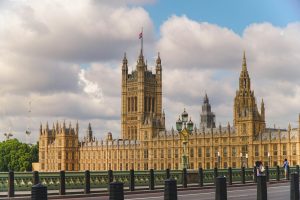Last week the National Infrastructure Commission (NIC) published its first National Infrastructure Assessment (NIA). The report advocates investment in renewable rather than nuclear energy. Among the core proposals are the recommendations that half the UK’s electricity is provided by renewables by 2030 and that no more than one nuclear contract is awarded before 2025.
The assessment sets out the plan for the country’s infrastructure over the next 10–30 years. Importantly, government has committed to respond to the Commission’s recommendations.
The UK can reduce emissions at no extra cost.
The NIC’s analysis is that renewable energy sources are the most economical means of meeting future electricity demands whilst reducing emissions. In apparent contrast to government policy [1], the NIC also recommends a cautious ‘one by one’ approach to new nuclear plants, rather than a large fleet [2]. Its report states that the estimated average cost of the electricity system would be slightly lower in a renewables based system compared to one that involves multiple new nuclear power plants. NIC modelling shows that the higher costs of balancing a system with variable energy sources are offset by lower capital costs, which translate into lower costs in the wholesale market.
Government will listen to the recommendations.
The National Infrastructure Commission was established in 2015 to provide expert advice to the government and hold it to account on implementation. The Government has committed to respond to the recommendations and to adopt agreed recommendations as government policy.
Renewables are increasingly popular [3] but they have traditionally been seen as expensive. This assessment challenges that understanding and could remove an important barrier in policy-makers minds. It offers an option that satisfies electricity demands, climate change requirements and, crucially, provides value for money for consumers. Politicians are likely to be persuaded. Businesses will want to engage to persuade government about their own preferences for investment.
Brevia Consulting provides straightforward political advice and support to businesses and organisations.
Discover how Brevia can help you and your organisation by contacting the Brevia Energy Team on 020 7091 1650 or contact@brevia.co.uk
[1] Department for Business, Energy and Industrial Strategy, Industrial Strategy: building a Britain fit for the future, link
[2] National Infrastructure Commission, National Infrastructure Assessment, link
[3] Department for Business, Energy and Industrial Strategy, Energy and Climate Change Public Attitude Tracker – Wave 24, lin



